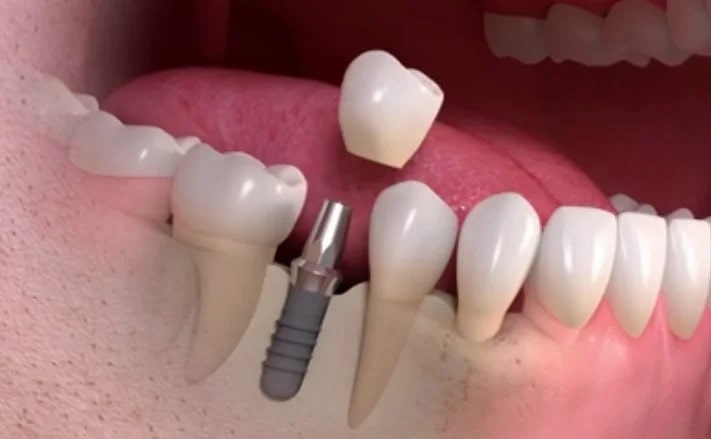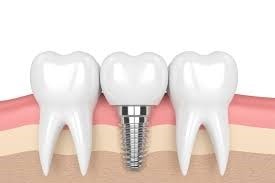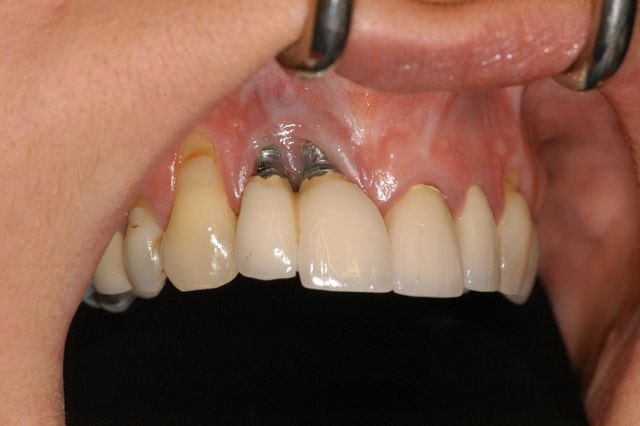Dental Implants are a popular treatment option if you need to replace missing or damaged teeth. They can help you to achieve a natural-looking smile, improve your comfort and give you a new sense of confidence. If you have missing or damaged teeth that you would like to correct, then dental implants can be an excellent solution. Dental implants are costly procedures, but are they worth it in the long run?
Dental Implant Lifespan
The structural nature of dental implants increases its longevity in a variety of ways. Within months following the procedure in which an oral surgeon places a dental implant in the mouth, the device fuses with the bone in order to become a permanent structure in the jaw.
Dental implants are designed to be a permanent solution to tooth loss and they can last between 20 and 30 years, but if you take care of it, your implant may be able to last a lifetime. .
One of the most important factors in the longjevity of the implants is you, how well do you keep up with your oral hygine.
How to incresse the dental implants lifespan
Maintaine a good oral hygine
Once you have had a dental implant fitted, you will still need to look after them just as you would your natural teeth. For the roots to successfully fuse, you will need to ensure that your gums are healthy and that your jawbone is dense enough. Any gum disease will need to be treated before implants are put in place and your dentist will check to make sure your jawbone is dense enough to hold an implant securely.
Although titanium and the ceramic crown on top are resistant to decay, the teeth and gums surrounding the implant are not. This is why very good oral hygiene is essential.
You will still be susceptible to issues like gum disease even with dental implants in place and so you need to ensure that you maintain a high level of oral care. Gum disease is the most common cause of tooth loss amongst adults, it can cause discomfort and can also have an impact on your overall physical health.
Making sure that you brush your teeth twice a day for 2-3 minutes and floss as often as possible will help to reduce the build-up of plaque and keep your gums healthy.
In the majority of cases the root will last a lifetime and it is usually the ceramic crown that will need replacing. However, if you do suffer from gum disease and have dental implants fitted, there is a higher risk of the implant failing and being rejected.
Get regular teeth cleanings and exams
Make sure you see your Doctor every six months for a teeth cleaning and oral exam. Druing this time, your doctor will examine your mouth, and check on the health of your teeth and gums, as well as your dental implant. Regular appointments help you maintain excellent oral health, which is essential for implant longevity.
Get a night guard if you grind your teeth
Grinding your teeth will not cause your implant to fail, but it can cause your implant restoration, such as a dental crown, to wear down and loosen prematurely, which is inconvenient. If you grind your teeth at night, it’s a good idea to get a new custom-made night guard after you’ve had a dental implant placed. This will help protect your implant, as well as your natural teeth.
Why Dental Implants Fail
Dental implants can fail for a variety of reasons. Understanding them can help you take proactive steps to extend the life of your implants.
Wear and Tear
Unreasonably hard wear on one’s teeth or mouth can reduce implants’ lifespans. Typically, this includes activities like using one’s teeth to open corked bottles or packages, or chewing on substances not suitable for consumption.
Implants in the back of the mouth are more likely to fail over time than those in the front. This is true even under normal and appropriate use, due to differences in pressure during eating.
Unhealthy Habits
Excessive smoking and alcohol consumption can weaken the body. In particular, they can do great damage to the mouth. This can negatively affect the integrity and longevity of dental implants.
This is especially important to consider in the early stages of your dental implant treatment. For your dental implants to heal properly, your body depends on sufficient blood flow to the treated area. Nicotine affects your blood vessels, oxygen levels and blood flow and can slow down your recovery. Alcohol could act as a bloodthiner meaning even longer recovery time.
Food and Chewing Habits
Foods that are sugary, sticky, or hard can negatively affect the lifespan of your implant. Your dentist will likely tell you to avoid these at least as long as it takes your mouth to heal. Clenching your jaw or chewing hard can also decrease your implant’s lifespan.
Location of the Implant
People don’t use their whole mouth equally. An implant placed in the front of the mouth will last longer than one in the back. This is because the back teeth are used more often and with greater pressure.
Medical Conditions
Similarly, certain diseases and medical conditions can lower the lifespan of your implants. This can happen through a variety of mechanisms. Diabetes, Cancer, Gum disease, are some of the most common medical reasons for failing dental implants.
Summery
maintaining good oral and general health, or improving it, can help keep your implant healthy and not fail. Perform daily brushing and flossing (even after you receive your implant) and see your dentist regularly to help stop dental disease. Don’t delay treatment for gum disease or other dental conditions. And seek medical care to bring any systemic diseases like diabetes under control.




